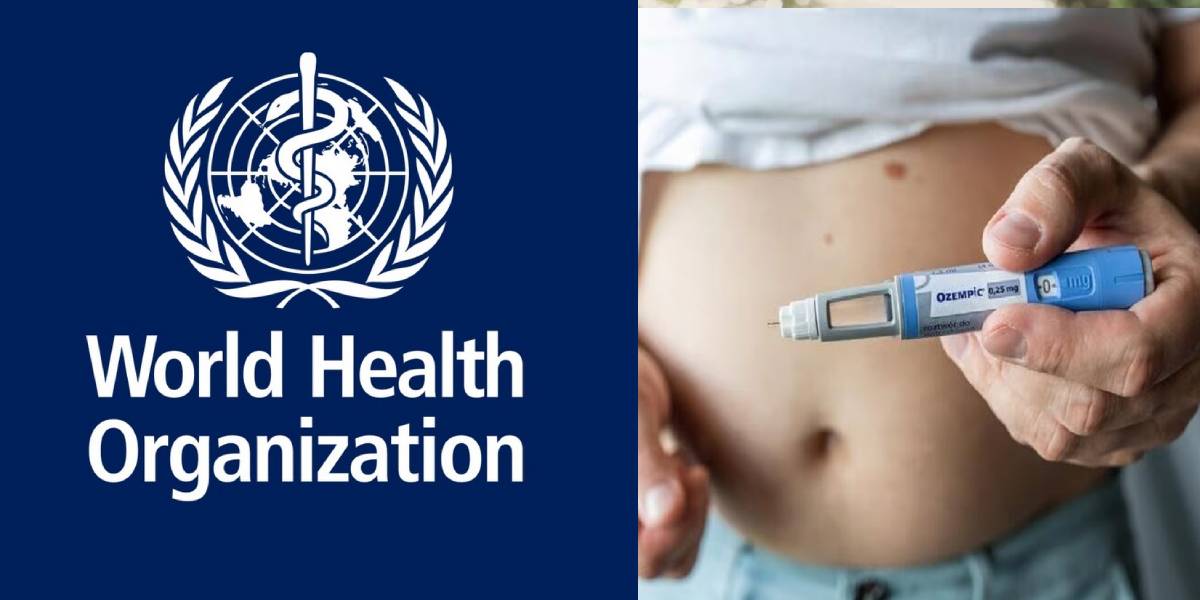The alert concerns three popular brand-name drugs: Ozempic, Rybelsus and Wegovy, all containing the active ingredient semaglutide. It specifically highlights the risk of non-arteritic anterior ischaemic optic neuropathy (NAION), a condition that can cause sudden, irreversible vision loss.
Published Jul 02, 2025 | 7:00 AM ⚊ Updated Jul 02, 2025 | 7:00 AM

Synopsis: The World Health Organization has issued a global safety alert over rare cases of irreversible vision loss linked to popular diabetes and weight-loss drugs containing semaglutide, including Ozempic, Rybelsus, and Wegovy. Patients experiencing sudden vision loss are urged to seek immediate medical help, while and and healthcare providers advised are advised to discuss potential risk with patients.
The World Health Organization (WHO) has issued a global safety alert about a rare but serious vision-threatening condition linked to widely used diabetes and weight loss medications containing semaglutide.
The alert, issued on 27 June, concerns three popular brand-name drugs: Ozempic, Rybelsus and Wegovy, all containing the active ingredient semaglutide.
It specifically highlights the risk of non-arteritic anterior ischaemic optic neuropathy (NAION), a condition that can cause sudden, irreversible vision loss.
“The vision loss is generally irreversible, and there is currently no effective treatment available,” the alert warned.
The European Medicines Agency (EMA) has already moved to update safety information for these medications, recommending that NAION be listed as a “very rare” side effect following a comprehensive safety review.
The agency’s Pharmacovigilance Risk Assessment Committee (PRAC) analysed data from clinical trials, post-marketing surveillance, medical literature and non-clinical studies before reaching its conclusion.
According to the EMA’s assessment, NAION potentially affects up to 1 in 10,000 users of semaglutide medications, earning its classification as a very rare adverse event.
NAION is a leading cause of vision loss in adults and ranks as the second most common optic neuropathy after glaucoma.
The condition typically manifests as sudden, painless vision loss in one eye, accompanied by swelling of the optic disc.
Patients taking semaglutide medications who experience sudden vision loss or rapidly deteriorating eyesight are urged to contact their healthcare provider immediately.
If NAION is confirmed through medical evaluation, treatment with semaglutide should be discontinued.
The WHO’s decision to issue this safety alert reflects both the widespread global use of semaglutide medications and the serious consequences of NAION.
The safety alert represents the latest development in ongoing scrutiny of GLP-1 receptor agonists, which have revolutionised treatment for diabetes and obesity but continue to reveal new safety considerations as their use expands globally.
Semaglutide, classified as a glucagon-like peptide-1 receptor agonist (GLP-1RA), has gained enormous popularity for treating type 2 diabetes and obesity.
The organisation has received individual case safety reports of NAION following semaglutide use from multiple countries through VigiBase, its global database for tracking adverse drug reactions.
At its May 2025 meeting, the WHO Advisory Committee on Safety of Medicinal Products (ACSoMP) evaluated available evidence and concluded that risk management plans for semaglutide should be revised to include NAION as a potential risk.
This may trigger additional pharmacovigilance activities to monitor for this adverse event.
Healthcare providers are advised to discuss this potential risk with patients currently taking or considering semaglutide therapy, while emphasising the importance of immediate medical attention for any sudden vision changes during treatment.
(Edited by Dese Gowda)
